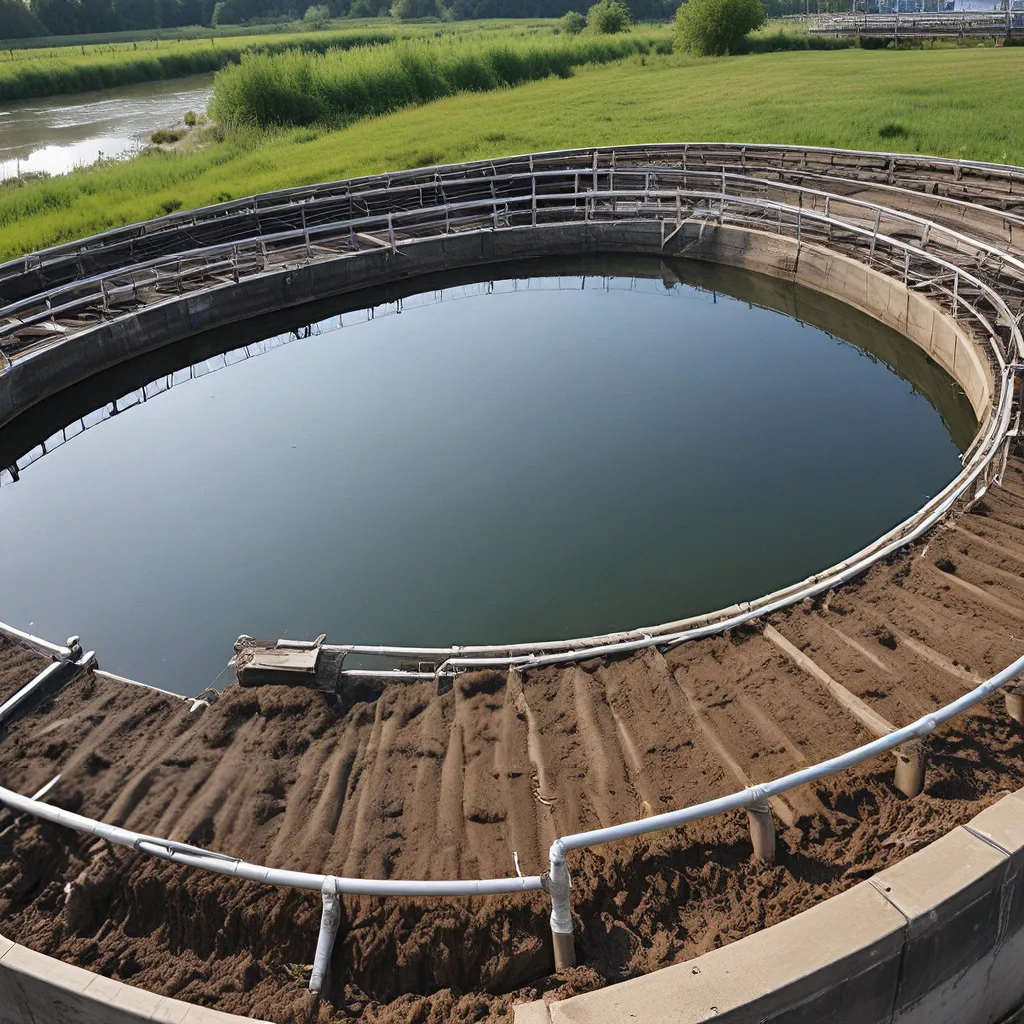
Uncovering the Hidden Potential of Wastewater
As someone who’s passionate about sustainability and the environment, I’ve always been intrigued by the fascinating world of wastewater treatment. It’s remarkable how this often-overlooked process can actually hold the key to unlocking a more circular bioeconomy – one where we transform waste into valuable resources.
Let me tell you, I recently stumbled upon some eye-opening information that completely changed my perspective on wastewater. Did you know that wastewater treatment plants are essentially mini-factories, churning out all sorts of useful byproducts? I was blown away to learn that these facilities can generate renewable energy, nutrient-rich fertilizers, and even bioplastics – all from what we typically think of as just plain old sewage.
It’s like uncovering hidden treasure in our own backyard! And the best part? This circular approach to wastewater management isn’t just good for the environment – it also presents some really exciting business opportunities. Imagine transforming waste into profit through innovative solutions like the ones I’ve been reading about. Talk about a win-win scenario!
Harnessing the Power of the Circular Bioeconomy
As I dove deeper into this topic, I came across this really cool initiative called HOOP (short for Horizon 2020 Open Innovation Test Beds for the Circular Economy). Apparently, it’s a European Union project dedicated to developing and demonstrating circular bioeconomy solutions for urban waste.
The researchers behind HOOP are exploring all sorts of fascinating ways to extract value from things like food waste, sewage sludge, and even agricultural byproducts. For example, did you know that they’re working on converting organic waste into biofuels and bioplastics? How cool is that?
But it’s not just about creating new products – the HOOP project is also focused on reducing waste and improving resource efficiency. They’re testing out innovative technologies that can recover nutrients and water from wastewater, helping to close the loop and minimize our environmental impact.
HOOP is a prime example of how a circular bioeconomy approach can unlock tons of potential in the wastewater treatment sector. By seeing waste as a valuable resource rather than just something to dispose of, we can explore all sorts of innovative ways to create a more sustainable future.
Transforming the Wastewater Landscape
As I continued my research, I stumbled upon an interesting article that really got me thinking about the broader implications of this circular bioeconomy approach to wastewater treatment. According to the Science Direct study I came across, the circular economy has the potential to completely transform the way we manage our wastewater resources.
The article highlights how this shift in mindset – from waste to worth – can open up new revenue streams for wastewater treatment plants. Instead of just treating the water and sending it back into the environment, these facilities can extract valuable materials and generate renewable energy from the process.
The study suggests that by embracing a circular bioeconomy, wastewater treatment plants can become self-sustaining and even profitable enterprises. Imagine a world where these facilities don’t just consume resources, but actually produce them – things like fertilizers, biofuels, and bioplastics.
It’s a fascinating concept, and one that’s already starting to take shape in various parts of the world. I’ve read about wastewater treatment plants that are generating their own electricity from the methane produced during the treatment process. Others are recovering phosphorus and nitrogen from the sludge to create high-quality fertilizers. The possibilities are truly endless!
Unlocking the Power of Wastewater Innovation
As I continued to explore this topic, I came across an Ellen MacArthur Foundation report that really drove home the importance of a circular bioeconomy approach to wastewater management. The report highlighted how this shift in mindset can have far-reaching impacts, not just on the environment, but on the economy and even human health.
According to the foundation, transitioning to a circular bioeconomy in the wastewater sector can reduce greenhouse gas emissions, conserve natural resources, and minimize the release of harmful pollutants into the environment. And the benefits don’t stop there – the report also shows how this approach can create new jobs, generate revenue, and even improve food security by producing nutrient-rich fertilizers.
It’s truly amazing to see how something as seemingly mundane as wastewater treatment can have such a profound impact on so many different aspects of our lives. And the best part? This is just the tip of the iceberg. As research and innovation in this field continue to progress, I can’t wait to see what other incredible breakthroughs and opportunities emerge.
Perhaps one day, we’ll look back on our current wastewater management practices and wonder how we ever thought of it as just a waste disposal problem. Instead, we’ll see it as a valuable resource that can be harnessed to build a more sustainable, resilient, and prosperous future. And you know what? I believe that day is closer than we think.
So, if you’re like me and want to be part of this exciting circular bioeconomy revolution, I highly recommend exploring the services offered by Alpha Wastewater. They’re at the forefront of this movement, developing innovative solutions that turn waste into worth. Who knows, together we might just uncover the next big breakthrough in the world of wastewater treatment!